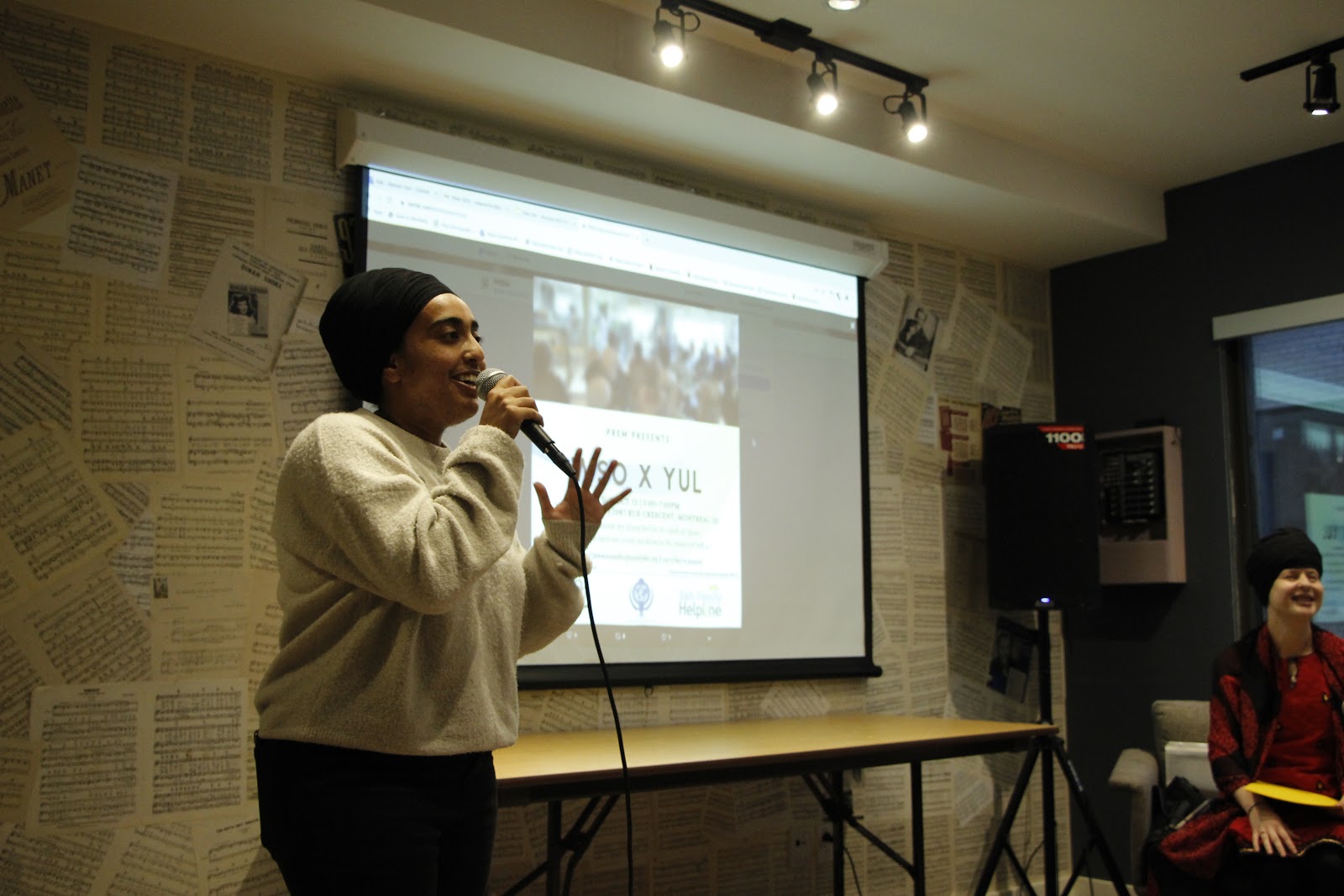In a night filled with heartfelt words and personal reflection, World Sikh Organization hosted an open mic in hopes of providing a safe space for those affected by bill 21 to share their experience.
In collaboration with Democratic Engagement Exchange and Punjabi Resilience and Empowerment in Mental Health (PREM), the event, which took place on Oct. 13 evening at Club Insiders anticafé, addressed the importance of social engagement through self-expression, solidarity and political engagement as elections approach.
“I hope the event was able to display the immense impact bill 21 has had on the mental health of religious minorities living in Quebec,” said Steeven Toor, founder and director of PREM.
The event was organized by Toor, who spoke about the importance of community in the face of Bill 21. He emphasized the isolation that the bill has imposed on many members of religious communities in Quebec.
Speakers shared creative projects such as photo essays and songs with the attendees. Political Science student at Concordia University, Mandeep Kaur, spoke about her frustrations. Her choice of wearing a traditional sikh turban empowers her identity but Bill 21 could hinder her pursuit of a career in law. She spoke about the injustice and isolation she feels by simply expressing her beliefs in physical form. “We have to stay together in solidarity. The bill is dividing us.” Kaur said.
A presentation was given by Bao-Vy Nguyen, a field organizer from Democratic Engagement Exchange (DEE), a non-partisan group that provides support and strategy to organizations promoting voter engagement. Nguyen spoke about the importance of voter engagement and gave the audience a few pointers to understanding party policies and tips for voting.
“Mobilization is also about being in touch with communities that are often left out of the conversations. It also starts by bringing awareness and sharing information,” Nguyeen said.
She also stressed the importance of having representation and voting to effect change. “I’m happy that many took away the Punjabi Misinformation guide, it goes to show that people are actually interested, we just need to find more ways to reach out to people and make these resources accessible and inclusive.” The Punjabi Misinformation guides are pamphlets provided by the DEE to show facts and information about the elections and candidates that affect their community.
“I was very happy to see so many folks come and support the event,” Toor said. “I was also glad to see all walks of life in the room and to be able to share space with people from different communities,” Toor said.
Photo by Mishkat Hafiz




